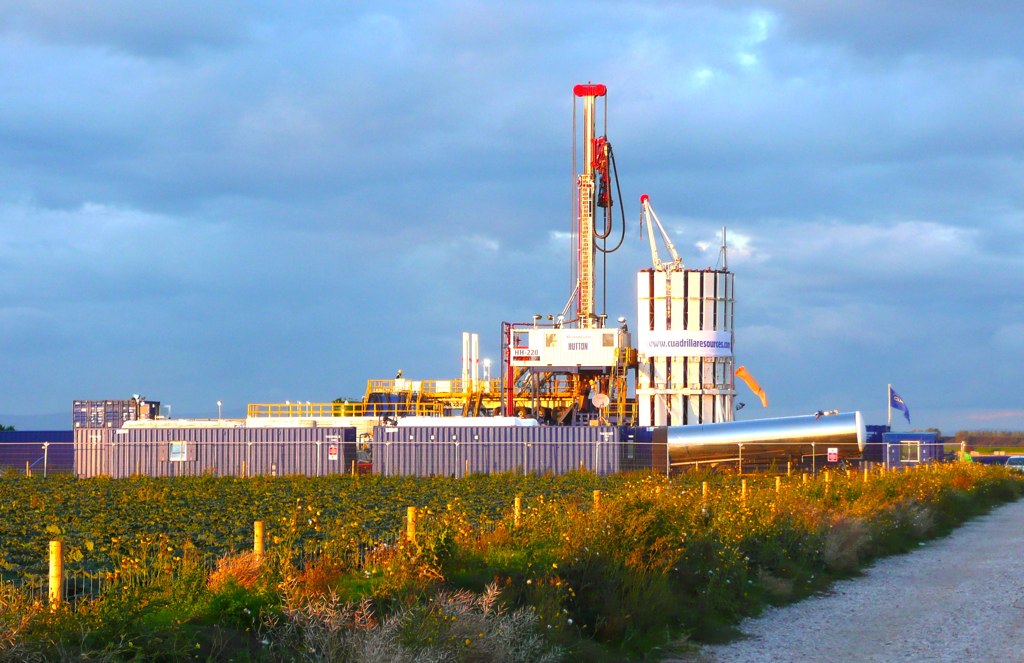Weak fracking rules have officially been enshrined in law as the controversial Infrastructure Bill became an act last night.
The new act will see national parks and groundwater protection zones at risk from fracking as the government backtracked on amendments agreed only weeks ago to increase the safety of hydraulic fracturing for shale gas.
Amber Rudd, energy minister at the Department of Energy and Climate Change (DECC), said: “In the case of areas of outstanding natural beauty and national parks, given their size and dispersion, it might not be practical to guarantee that fracking will not take place under them in all cases without unduly constraining the industry.”
She was supported by Peter Lilley, a self-described ‘global lukewarmist’ Conservative MP, who said fracking should be “pursued energetically”.
Conservative Votes
The weak fracking rules were passed by the House of Commons last night in a vote of 257 to 203 with five Conservative MPs defying the government’s stance on fracking.
Mark Menzies MP and Eric Ollerenshaw MP both voted against Cameron’s leadership. They represent constituencies in the district where Cuadrilla is applying for planning permission to frack up to eight wells.
This is the second time in just over a fortnight that they have voted against their party on fracking. At the Report Stage of the Bill on 26 January they both voted in favour of a fracking moratorium. They were joined yesterday by fellow Conservatives Andrew Percy, Jason McCartney and Andrew Turner.
The amendments passed on Wednesday – a watered-down version of those agreed at the Report Stage promising greater fracking safety – are identical to the ones proposed by Lib Dem peer Baroness Kramer on 5 Feb and supported by climate deniers Matt Ridley and Lord Lawson on Tuesday.
Ambiguous Rules
Fracking companies will now be allowed to drill horizontally under national parks and other protected areas if the wells start just outside their boundaries.
The new Act also does not define what constitutes a groundwater area, leaving much ambiguity. This is despite definitions already existing as laid out by the Environment Agency.
Tom Greatrex, Labour shadow energy minister, said: Groundwater protection zones are defined—we know what they are—but the Minister seems to be content to rely on the much more ambiguous term “protected areas” while having no sense of what those areas are. It is vital for groundwater, and sources of drinking water, to be properly protected, and there is concern about that on both sides of the House.”
Caroline Lucas, Green MP, added: “If the wording is somehow insufficient, the Minister should go away and redraft it. The Government should certainly not use that excuse for weakening safeguards.”
One Hour Debate
Many MPs were also critical that they had only one hour to discuss the issue and there was no time to vote on many of the bill’s amendments.
Lucas said the debate was: “A mockery of legitimate public concerns and indeed the democratic process. The paltry hour scheduled for today’s debate is particularly disgraceful given the lack of time we had at Report Stage.
“These are far-reaching changes that are being discussed here. Our constituents deserve better. Parliament has let them down tonight.”
Percy agreed, saying “it leads many people to conclude that the Government are in league with the extraction companies or that there is something to hide.”
He added: “I think there is a very strong argument indeed for pausing and thinking again on this issue, particularly given what has happened to oil prices internationally.”
Photo: Justin Woolford via Flickr
Subscribe to our newsletter
Stay up to date with DeSmog news and alerts







